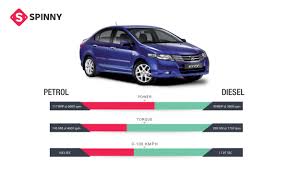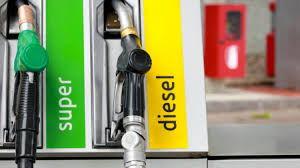Adding Your Information: Diesel and Gas Engines Explained
Unsure if petrol or diesel engine is right for your car? Rev your knowledge with our fun and informative guide! We explain the key differences between these engines, including fuel efficiency, power, and cost. Discover which engine best suits your driving style and needs.
LIFE


Hey Gearheads and Daily Drivers!
Have you ever wondered what makes your car run?
Today we open the hood and dive deep into the world of internal combustion engines, focusing in particular on the two main candidates: diesel and gasoline (petrol) engines.
Buckle up, because we're about to switch gears and get you with the car!
Finally: the basics
Both diesel and gasoline engines are like mini power plants for your car.
They take fuel, burn it and create energy to make your bike spin.
Both use a four-stroke cycle: intake (air is drawn in), compression (air is compressed), combustion (fuel ignites and expands), and exhaust (exhaust gases are expelled).
Here's where things get interesting: the ignition process.
Gasoline engines use spark plugs to ignite the mixture of air and gasoline.
Diesel engines, on the other hand, are like little pressure cookers.
They compress the air so much that it becomes very hot, causing the injected diesel fuel to self-ignite - no spark plug required!
Let's Talk Tech: Basic Components
To understand how these engines work, let's look at some of the most important parts:
Fuel Injection System: This is how the right amount is injected into the cylinders of the engine at the right time fuel.
Lubrication System: This keeps all the moving parts nice and smooth to prevent wear. Think of it as motor oil to victory!
Cooling System: This keeps the engine from overheating, just like a radiator cools your house on a hot day.
Exhaust system: it directs used gases away from the engine. Think of it like taking out the trash!? Thermal efficiency: Diesel engines are the masters here. They squeeze more power out of every drop of fuel, making them more fuel efficient, especially in heavy vehicles like trucks.
Engine Lifecycle: Diesel engines are built to last! They withstand more pressure and have thicker parts, which gives them a longer life.
Torque: Diesel burns slower so these engines run at lower RPM which means less wear and tear.
Startup costs: Gasoline leads here. Diesel vehicles tend to have a higher price tag and can also be more expensive to repair.
Noise and Vibration: if you like a smooth and quiet ride, gasoline is your friend. Diesel engines can be a bit louder and vibrate more due to the higher pressure.
Heide: This is complicated. Diesel engines produce less CO2 emissions, but produce more nitrogen oxides (NOx), which can be harmful to the environment. That's why modern diesel vehicles use aftertreatment systems to clean exhaust gases.
Vehicle Choice: Petrol vs Diesel
So, which engine is right for you?
It depends on your driving habits and needs.
Here's a quick guide:
For most daily drivers: Gasoline engines tend to be cheaper, quieter and require less maintenance.
For road users and those hauling heavy loads: Diesel engines offer excellent fuel economy and better torque when hauling things.
Final edit: knowledge is power!
Understanding the differences between gasoline and diesel engines will help you make an informed decision about your next car.
Now you can impress your friends with your new motorcycle knowledge or just feel more confident behind the wheel.
A little car knowledge goes a long way!
Want to learn more?
This article only scratches the surface of the fascinating world of internal combustion engines.
If you want to dig deeper, check out our blog for more articles on car maintenance, engine performance and everything in between.
Happy driving!
Unsure if petrol or diesel engine is right for your car?
Rev your knowledge with our fun and informative guide! We explain the key differences between these engines, including fuel efficiency, power, and cost. Discover which engine best suits your driving style and needs.


